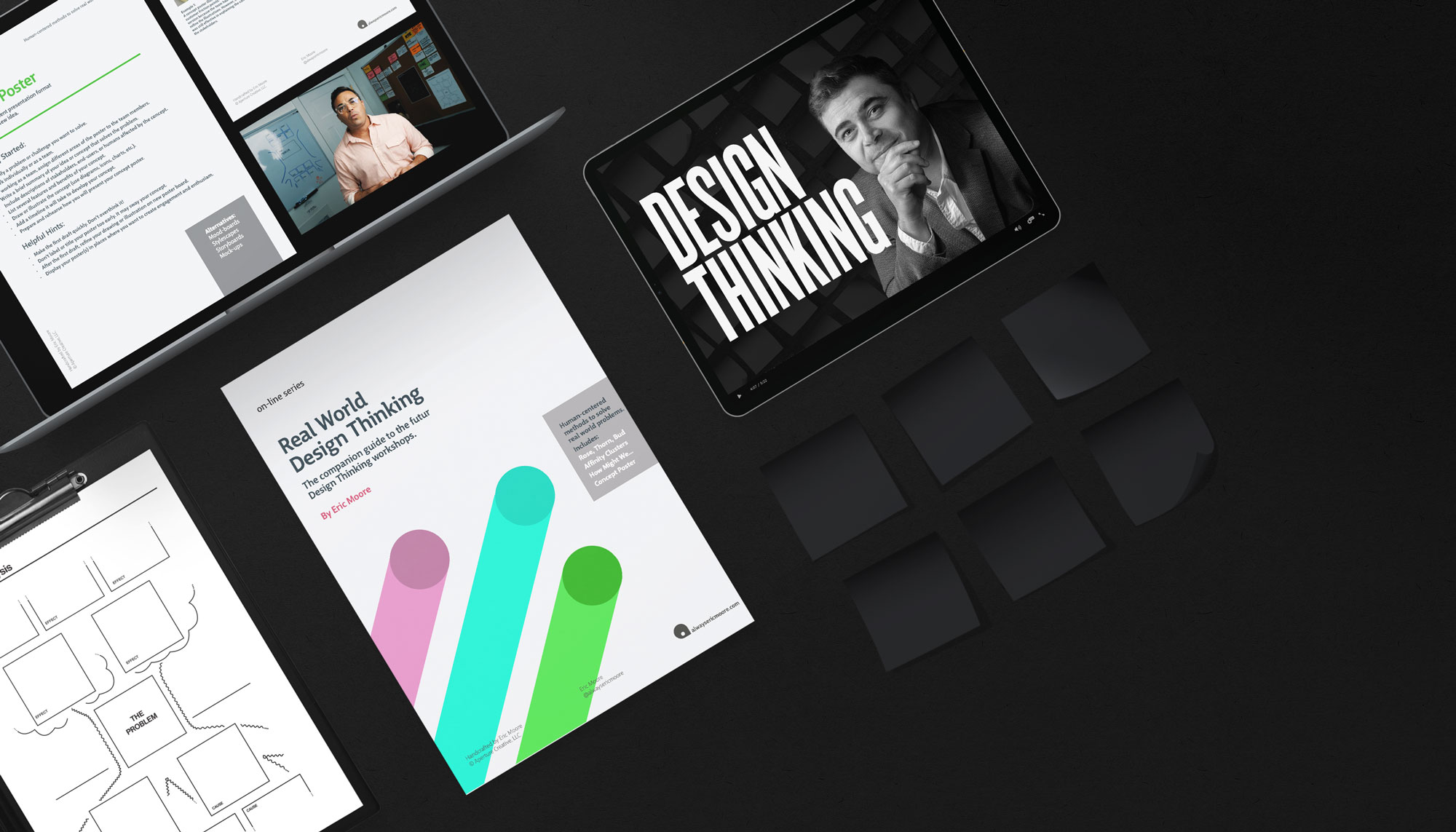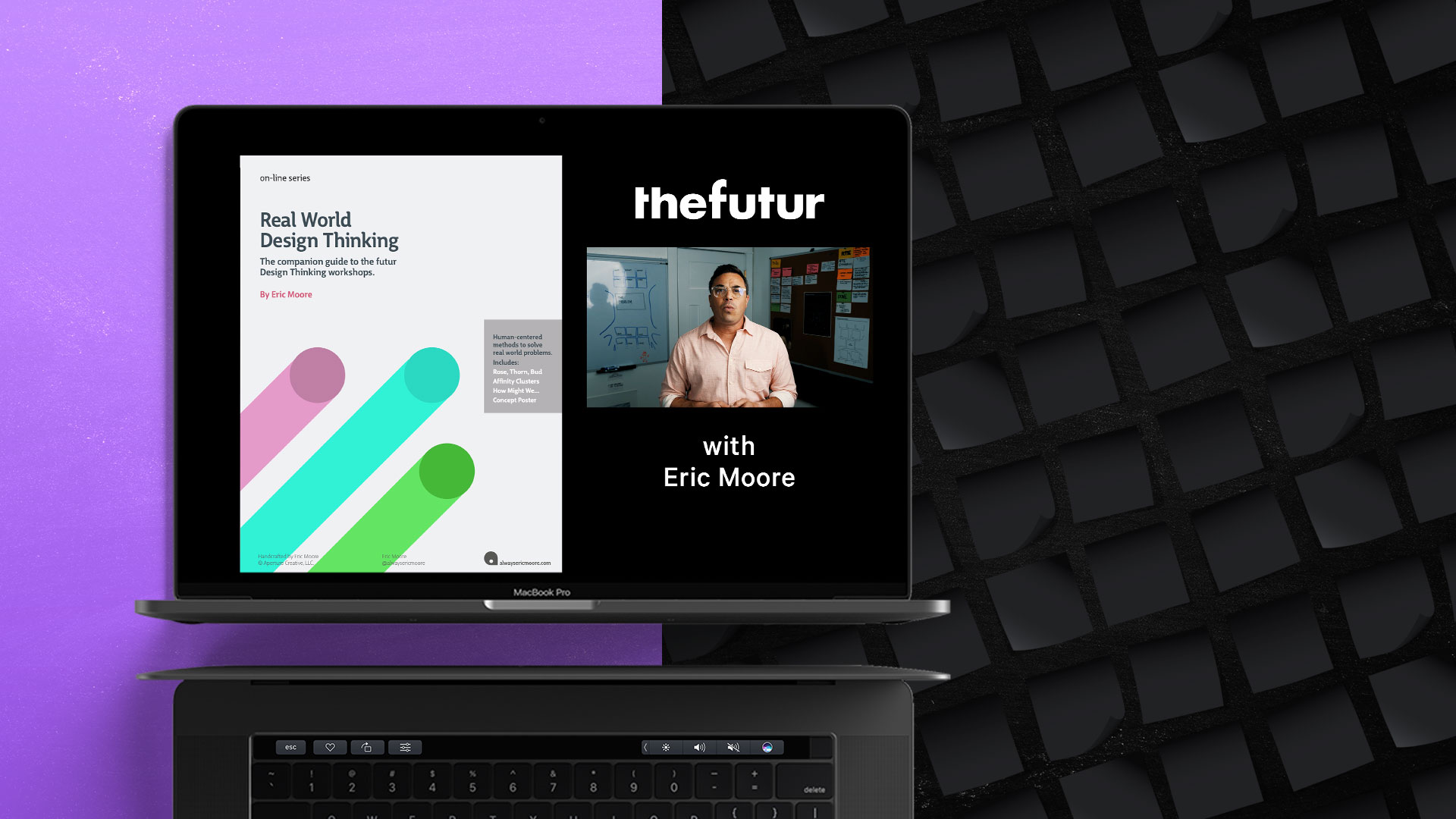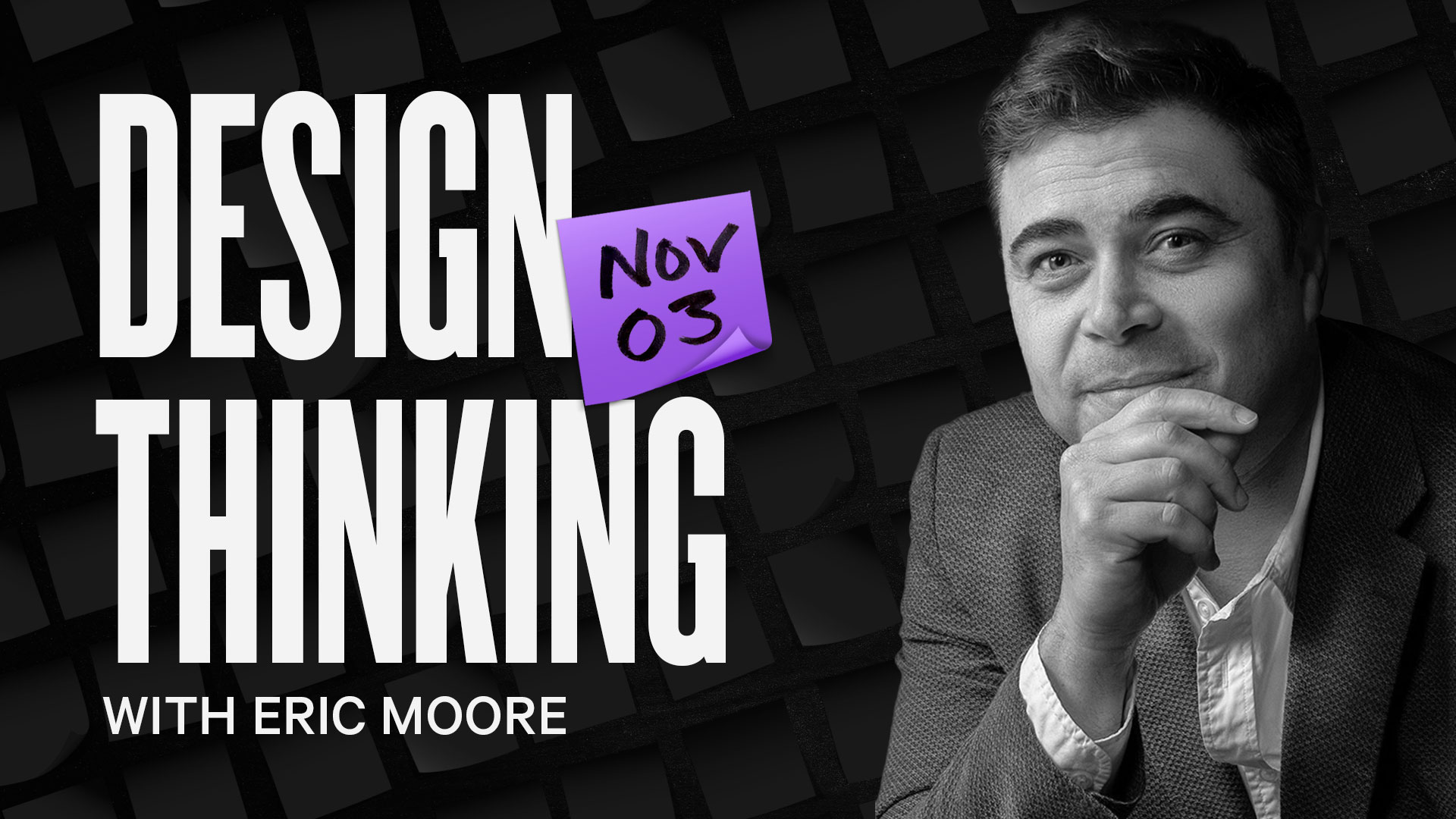Be The First To Know
Join Our Newsletter
Design Thinking Workshop
11.3.21
https://www.eventbrite.com/e/the-design-thinking-workshop-tickets-190226872697

Bring innovative solutions to your clients' biggest problems with the Design Thinking Framework. This workshop provides all the tools and methods you need to go from seeing and understanding a business problem to ideating solutions and testing prototypes. Your clients will thank you for it!
Join us!
Influence Change and Bring Innovation to Your Clients' Problems
All businesses want to be seen as innovative. But there's a big difference between saying you're innovative and actually designing innovative solutions to problems. That's where the Design Thinking Framework comes in. Through seeing and understanding the problem, to coming up with and testing possible solutions, this workshop gives you all the methods and tools you'll need to become a true business innovator.
Turn Tricky Problems Into Fresh Ideas
You don't want to deliver the same-old-same-old solutions to your clients' biggest challenges- they might not even work! You want to stand out and provide fresh ways of tackling problems. Ways based on research and testing rather than assumptions and guessing.
In the Design Thinking Workshop you'll learn how to:
Become your client's trusted adviser by developing your co-creation skills.
Strengthen your confidence in delivering end-to-end results to your client.
Find innovative solutions to clients' problems through various brainstorming techniques.
Quickly develop and test the viability of your ideas and solutions through prototyping.
This program is for professionals who need to solve complex business and design problems centered on the unmet needs of the user.
With simple-to-use methods, anyone from creatives to policymakers can put Design Thinking to use in their everyday work. It's made especially for:
- Aspiring entrepreneurs who are looking to design and shape impactful organizations and businesses.
- UI/UX designers and product managers who wish to establish a user-centric mindset while creating innovative products or services.
- Marketing professionals who wish to keep pace with the needs and expectations of the increasingly savvy customer.
- Professionals from customer-centric industries like travel, hospitality, education and health sectors who would like to learn how to create delightful customer experiences.
Workshop Outcomes
- Understand the history and development of Design Thinking
- Understand the Design Thinking Framework
- Understanding your customers' needs
- Develop interviewing and empathy techniques
- Uncover observations and insights
- Define point of views
- Generate viable ideas to solve problems
- Develop and test prototypes
Eric Moore
I know what it is like to be a creative person in a typical, rigid world. A world where others view you as the dreamer, the one who pushes pixels and makes things "pretty".
I see this behavior almost everywhere in the workplace. Especially when solving complex problems, people do not connect the dots with the creative team. The so-called leaders believe they know what the problem is, who it affects, and what the outcomes should be.
For example, when I ask basic questions like “If this is such a problem for human resources, has anyone talked to them?” I am usually greeted with scoffs and chuckles. Most reply, "No. Why would we talk to them? We know what the problem is."
What I learned was to continue to be inquisitive...




Bring Innovation to Problems and Increase Your Value to Clients
Introduction
Learn a brief history of Design Thinking, and how it has changed to meet today's needs. You'll be introduced to The Problem and Solution Spaces, a way to see end-to-end the big picture of seeing and solving problems for businesses.
The Design Thinking Framework Pt. I: Problem Space (Seeing and Understanding)
It all starts by getting laser-focused on identifying the client's problem (or even your own) from a user's perspective. You'll walk away with a toolbox full of activities that will help you conduct research, develop empathy for the people you are solving for, and make the most out of your research by gaining insights into solutions.
The Design Thinking Framework Pt. II: The Solution Space (Making and Storytelling)
Time to tackle the problem! You'll be provided various methods for generating potential solutions for your clients. And once you've created an early version of the solution, you're going to need to do some testing with storytelling. Because no matter how good your solution is, it won't see the light of day until you can pitch it with an interesting story. This workshop will provide the methods you need to help shape your idea's story.
The Design Thinking Framework Pt. III: Learning Fast (AKA Testing)
Heard about failing fast? Well, in Design Thinking it is all about learning fast. You'll learn to strengthen your ideas as testable prototypes. Prototypes help gain rapid, real-time feedback from your stakeholders. Because the last thing you want is to go full-force with a new idea without a clue if it will actually solve the problem.
Workshop Bonuses
We're loading this workshop with a resource list to help you continue your Design Thinking education, a workbook with step-by-step instructions for all the hands-on methods you'll learn, and an editable progress tracker so you can stay up to speed with your studies.
Details & Logistics
Date & Time:
November 3, 2021 at 8:30AM-12:30PM PDT
Length & Format:
Approximately 4 hours. Digital video conference hosted on Zoom, online only.
Live Attendance:
We recommend attending the workshop live, but we do not require you to do so. You will have access to a video recording of the workshop for 14 days after the event.
How to Prepare:
- Have water on hand: it's important to stay hydrated!
- If you'd like the instructor to see you, make sure your webcam and microphone are in good working order.
- There will be interactive group exercises, so prepare to interact with attendees. No obligation to take part - we understand some of you may not actively participate.
Frequently Asked Questions
What is Design Thinking?
Design thinking is a human-centered process for solving problems that result in effective, innovative solutions.
It includes a series of specific steps that must be done in a specific order and a set of core principles. The steps are seeing, understanding, and making. The principles are empathy, thinking by doing, iteration, and collaboration.
It is a way to increase the likelihood that you are going to have success when you’re trying to solve a problem or do something new.
Why should I choose The Futur's Design Thinking workshop?
Eric Moore, a highly experienced professional who applies the Design Thinking approach for both small and large companies, will lead the workshop. Eric and The Futur designed a comprehensive curriculum that covers useful methodologies in the design thinking process. Plus, you know and love the quality of content from The Futur. (And we love you, too!)
What is the structure of the Design Thinking workshop?
The workshop is a 4-hour online program with live facilitation and hands-on exercises. Learners will receive a Design Thinking Methods PDF Handbook and a template for journaling your learning experiences. Plus, access to post questions on CIRCLE.
Is Design Thinking just for designers?
No. Almost anyone can use Design Thinking for problem solving.
Will Design Thinking solve all problems?
No. But it is a way to increase the likelihood that you are going to have success when you’re trying to solve a problem.
How is Design Thinking different from Brand Strategy?
TLDR- they're like peanut butter and jelly- better together.
Design Thinking seeks to solve problems across multiple disciplines and industries. Brand Strategy applies to a specific discipline like Marketing and Visual Communications. Design Thinking methods are regularly used inside Brand Strategy exercises and workshops, so there are overlapping areas.
Meet Your Coaches
Eric Moore
I know what it is like to be a creative person in a typical, rigid world. A world where others view you as the dreamer, the one who pushes pixels and makes things "pretty".
I see this behavior almost everywhere in the workplace. Especially when solving complex problems, people do not connect the dots with the creative team. The so-called leaders believe they know what the problem is, who it affects, and what the outcomes should be.
For example, when I ask basic questions like “If this is such a problem for human resources, has anyone talked to them?” I am usually greeted with scoffs and chuckles. Most reply, "No. Why would we talk to them? We know what the problem is."
What I learned was to continue to be inquisitive...

Seating is limited! Register for The Design Thinking Workshop with Eric Moore.
November 3rd, 8:30AM-1PM PDT


